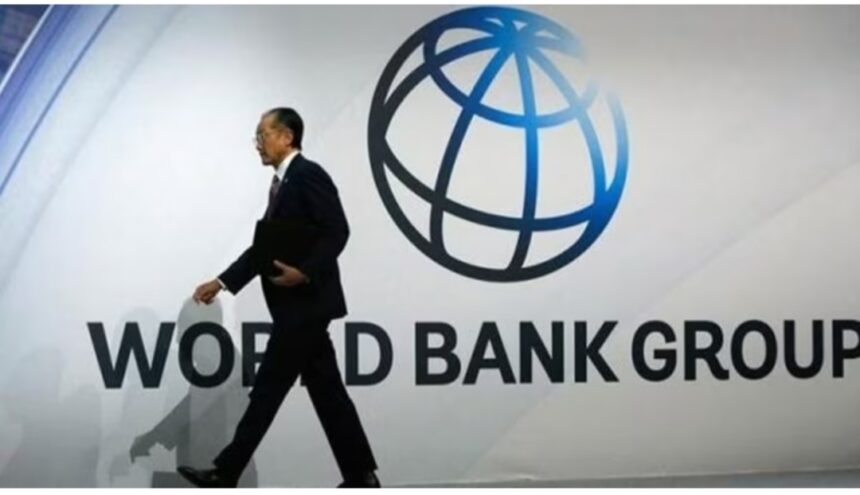The World Bank emphasized that if conflict escalates, policymakers in developing countries will need to take steps to manage the potential for a rise in overall inflation.
Conflict in West Asia, combined with disruption from Russia’s invasion of Ukraine, has had a limited impact on commodity prices, but could cause a “double shock” to commodity markets, as disruption in energy markets could further increase food insecurity, according to the World Bank. » said in its latest Commodity Market Outlook report.
Noting that India’s ban on non-basmati rice exports “has shaken global markets since mid-July”, the World Bank said developing countries should avoid trade restrictions such as bans. export of food products and fertilizers.
Businesses should avoid trade restrictions such as bans on food and fertilizer exports.
“The increase in oil prices, if prolonged, will certainly lead to an increase in food prices. If a severe oil shock occurs, it will increase food price inflation, which is already high in many developing countries. By the end of 2022, more than 700 million people, equivalent to nearly 1/10 of the world’s population, will fall into malnutrition. The latest escalation of the conflict will further increase food insecurity, not just in the region but also worldwide.
The World Bank emphasized that if conflict escalates, policymakers in developing countries will need to take steps to manage the potential for a rise in overall inflation.
“Given the growing risk of food insecurity, governments should avoid trade restrictions such as bans on food and fertilizer exports. Such measures often increase price volatility and worsen food insecurity. They should also refrain from introducing price controls and subsidies to cope with rising food and oil prices. A better option is to improve the social safety net, diversify food sources and increase the efficiency of food production and trading. In the long term, all countries can increase energy security by accelerating the transition to renewable energy sources, which will mitigate the impact of oil shocks,” the report said. said.
Noting India’s ban on non-basmati rice exports, the World Bank said rice prices will remain high in 2024, as long as India maintains export restrictions. He also said that even if fertilizer demand recovers, India’s subsidy reduction in the second half of the season (early October) could further impact demand.
“India bans non-basmati rice exports in response to rising domestic prices (due to floods in northern India) and concerns about the potential impact of El Niño in key rice growing areas . These measures have shaken global markets since mid-July. Rice prices in August and September 2023 reached their highest level since the 2007/08 food price crisis,” the report said. India accounts for nearly 40% of global rice exports. The World Bank said oil prices are expected to average $90 a barrel this quarter, before falling to $81 a barrel next year as global economic growth slows. “General commodity prices are expected to fall 4.1% next year. Agricultural commodity prices are expected to decline next year due to increased supply. Base metal prices are also expected to decline 5% in 2024. Commodity prices are expected to stabilize in 2025,” the report said. However, the outlook for commodity prices will quickly darken if the conflict escalates. Laying out three risk scenarios based on historical experience since the 1970s, the World Bank said that in the “minor disruption” scenario, global oil supplies would fall by between 500,000 and 2 million barrels per day, roughly equivalent to the reduction observed during the Libyan civil war. war. war in 2011 and oil prices will initially increase to between 93 and 102 USD/barrel.
In a “medium disruption” scenario – roughly equivalent to the 2003 Iraq War – global oil supplies would fall by 3 to 5 million barrels per day, which could cause oil prices to rise between $109 and $121 per carton. In a “major disruption” scenario – comparable to the 1973 Arab oil embargo – global oil supplies would fall by 6 to 8 million barrels per day, which could push prices up by 140 million barrels per day. to 157 USD/barrel. .
So far, the impact of the conflict on global commodity markets has been limited, with overall oil prices up around 6% since the start of the conflict and prices of agricultural commodities, most metals types and other raw materials remained virtually unchanged. However, the report said the outlook for commodity prices would quickly darken if conflict intensifies.
World Bank: Conflict in West Asia could cause a “double shock” in global commodity markets
World Bank: Conflict in West Asia could cause a “double shock” in global commodity markets
The World Bank emphasized that if conflict escalates, policymakers in developing countries will need to take steps to manage the potential for a rise in overall inflation.
“Given the growing risk of food insecurity, governments should avoid trade restrictions such as bans on food and fertilizer exports. Such measures often increase price volatility and worsen food insecurity. They should also refrain from introducing price controls and subsidies to cope with rising food and oil prices. A better option is to improve the social safety net, diversify food sources and increase the efficiency of food production and trading. In the long term, all countries can increase energy security by accelerating the transition to renewable energy sources, which will mitigate the impact of oil shocks,” the report said. said. Noting India’s ban on non-basmati rice exports, the World Bank said rice prices will remain high in 2024, as long as India maintains export restrictions. He also said that even if fertilizer demand recovers, India’s subsidy reduction in the second half of the season (early October) could further impact demand.
“India bans non-basmati rice exports in response to rising domestic prices (due to floods in northern India) and concerns about the potential impact of El Niño in key rice growing areas . These measures have shaken global markets since mid-July. Rice prices in August and September 2023 reached their highest level since the 2007/08 food price crisis,” the report said. India accounts for nearly 40% of global rice exports.
The World Bank said oil prices are expected to average $90 a barrel this quarter before falling to $81 a barrel next year as global economic growth slows. “General commodity prices are expected to fall 4.1% next year. Agricultural commodity prices are expected to decline next year due to increased supply. Base metal prices are also predicted to fall 5% by 2024. Commodity prices are expected to stabilize by 2025,” the report said. However, the outlook for commodity prices will quickly darken if the conflict escalates. Laying out three risk scenarios based on historical experience since the 1970s, the World Bank said that in the “minor disruption” scenario, global oil supplies would fall by between 500,000 and 2 million barrels per day, roughly equivalent to the reduction observed during the Libyan civil war. war. war in 2011 and oil prices will initially increase to between 93 and 102 USD/barrel.
In a “medium disruption” scenario – roughly equivalent to the 2003 Iraq War – global oil supplies would fall by 3 to 5 million barrels per day, which could cause oil prices to rise between $109 and $121 per carton. In a “major disruption” scenario – comparable to the 1973 Arab oil embargo – global oil supplies would fall by 6 to 8 million barrels per day, which could push prices up by 140 million barrels per day. to 157 USD/barrel.
1.
Cricket World Cup: Jasprit Bumrah, Mohammed Shami add names to elite list of fast twins
2.
Bengaluru: After missing several deadlines, adaptive signals powered by Japanese technology will go live by the end of December.
So far, the impact of the conflict on global commodity markets has been limited, with overall oil prices up around 6% since the start of the conflict and prices of agricultural commodities, most metals types and other raw materials remained virtually unchanged. However, the report said the outlook for commodity prices would quickly darken if conflict intensifies.
Noting Russia’s orientation of exports from EU and G7 countries to China, India and Turkey, the World Bank said a price ceiling for Russian crude to be introduced at the end of 2022 is likely increasingly inapplicable due to recent increases in oil prices in the Urals, and the Price Cap has not caused significant supply disruptions, with Russian oil production and export volumes remaining relatively stable. “This cap does not create significant supply disruptions, with Russian oil production and export volumes remaining relatively stable, partly reflecting the orientation of Russian exports from the EU and G7 countries to China, India and Turkey. There is growing uncertainty about the discount at which Russian oil trades, as Ural benchmark prices are unclear and European brokers’ shipping cost estimates become more uncertain as their market share increased,” he said.
Source www.indianexpress.com
Looking ahead, policymakers must remain vigilant, with some commodities – notably gold – raising warnings about the outlook. “Gold prices have increased about 8% since the start of the conflict. Gold prices have a special relationship with geopolitical concerns: they rise in times of conflict and instability, which often signals an erosion of investor
confidence,” he said, adding that in the event of more widespread conflict in the Middle East, gold prices will likely rise from already high levels as investors turn to safe-haven assets.
For more information visit at https://happenrecently.com/zepto/?amp=1



